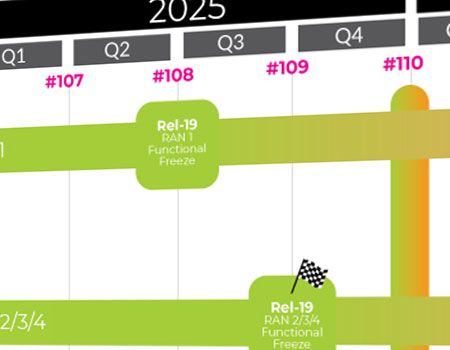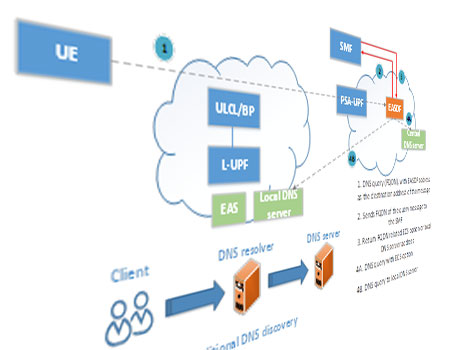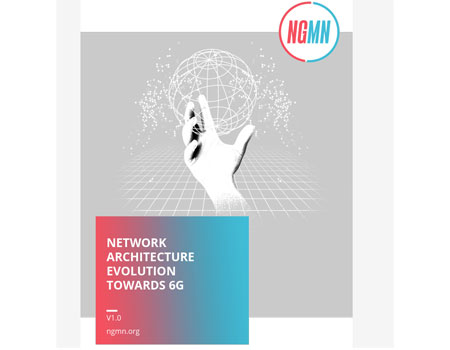by Peter Schmitt (TSG CT Chair)
At the CT#103 Plenary meeting of the Core Network and Terminals Technical Specification Group (CT TSG), held in Maastricht, Netherlands, the CT Working Groups have reached stage3 completion for Rel-18 - the first release for 5G Advanced. The release contains 75 features, making it difficult to cover them all here, but I would mention a few to give a flavour of what has been achieved.
The Support of Architecture Enhancements for XR (Extended Reality) and media service (e.g. uplink downlink coordination) is now in place.
This release also started to add the Next Generation Real Time Communication (NG_RTC) extension to the IMS network, to support data channel and augmented reality communication.
Regarding AI, two topics are covered. The support of System Support for Artificial Intelligence (AI)/Machine Learning (ML) - based Services and the Architecture evolution and use case enrichment for Enablers for Network Automation (Phase 3).
AIMLsys
eNetAE
Rel-18 Exceptions
With most of the work items successfully completed, attention turns to the Rel-18 work left to do in TSG CT.
Here is a quick look at the remaining outstanding issues, where ‘Exception sheets’ have been raised by each of the effected working groups:
EVS Codec Extension for Immersive Voice and Audio Services (IVAS_codec)
SA4 has developed a new codec for Immersive Voice and Audio Services (IVAS codec) in Rel-18, which is an extension of the 3GPP Enhanced Voice Services (EVS) codec, to address the increasing demand for rich and immersive multimedia services. CT WGS agreed to add support of the new codec in the core network. The work is intended to be started and completed in Q2 2024.
Network Slice Capability Exposure for Application Layer Enablement (NSCALE)
Network Slice Capability Exposure for Application Layer Enablement service API definition provided by the NSCE server needs to be completed. The NSCE API definition between the NSCE client and the NSCE server needs to be completed as well.
Architecture for enabling Edge Applications Phase 2 (EDGEAPP_Ph2)
CT3 has to cover security aspects of ECS-ER and ECS services. They have contacted SA3, seeking security clarifications related to ECS-ER and ECS services.
Application Data Analytics Enablement Service (ADAES)
CT3 has to cover a number of small issues on Application Data Analytics Enablement Service.
Enhancements to location services Phase 3 (5G_eLCS_Ph3)
Two major issues need to be resolved under this work item.
a) how to link the association between the TLS connection and the UE;
b) how the LMF associates the LCS service request to the TLS connection of the UE.
Enhanced Service Enabler Architecture Layer for Verticals Phase 3 (SEAL_Ph3)
Implementation of features related to Network resource management services and Corrections to location management services have to be completed.
SEAL data delivery enabler for vertical applications (SEALDD)
For the SEAL data delivery enabler for vertical applications the CoAP (Constrained Application Protocol) the resource representation and encoding is partly defined and needs to be completed.
Mission Critical (MC) Extensions:
- Enh4MCPTT (Enhanced Mission Critical Push-to-talk architecture phase 4), MC Location Management needs to be enhanced to provide location information of MC users requested by and transmitted to other MC users.
- MCGWUE (MC Gateway UE function for Mission Critical Communication), MC gateway UE QoS aspects needs to be completed and security considerations from stage 2 needs to be considered in stage 3
- MC_AHGC (Mission Critical ad hoc group communications), Ad hoc group emergency alert for MCPTT needs to be addressed.
During the second quarter of 2024, CT Working groups will give priority to these Rel-18 topics. This entails checks that stage 2 and stage 3 specifications align by providing contributions to bring the specification into line with the CT requirements at the time of code freeze in June. In principle this means that the primary target of CT groups is to ensure the quality of the Rel-18 version of the specification.
CT has also taken some time to discuss the 6G timeline. The intention is to start studies in the CT working groups once the stage 2 groups have provided sufficient input to start the work in CT. It is expected that a minimum of nine months will be needed to perform the necessary studies in CT working groups.
Further reading
- 3GPP Work Plan: Rel-18 status and T-docs for above tables.
- SP-240445 CT Status Report to TSG SA#103 (Annex – Approved Exceptions).
- Technical Specifications (29 series, etc) can be downloaded from …here.

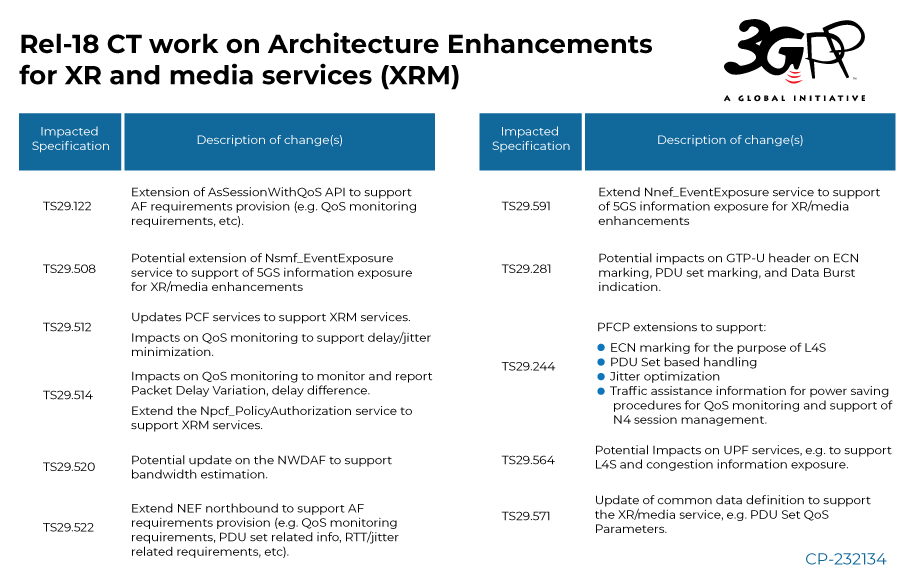
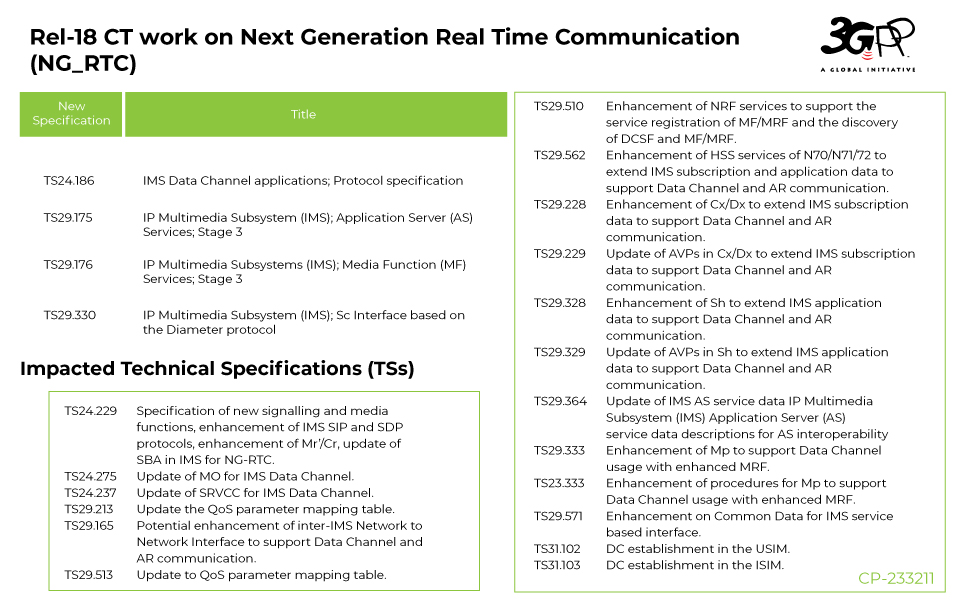
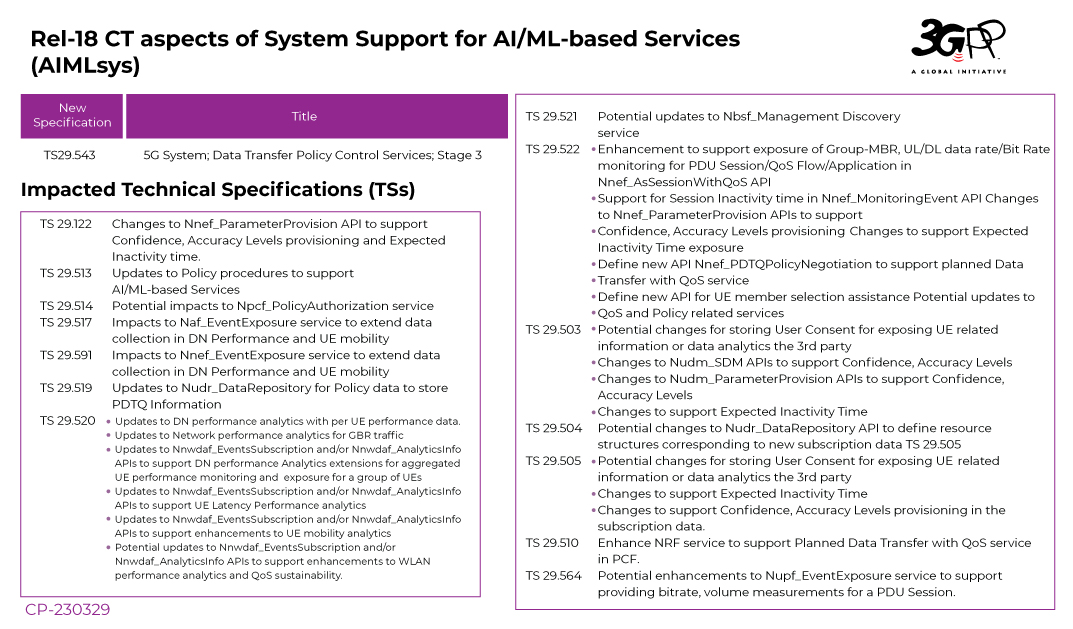
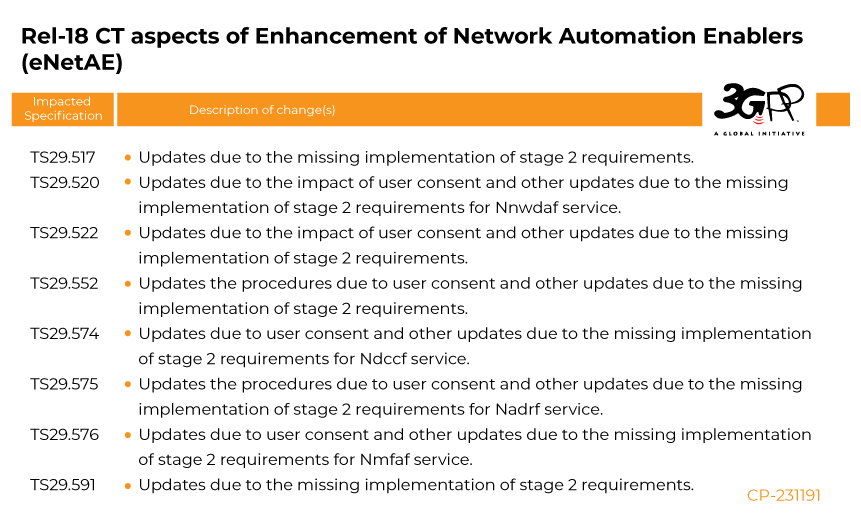
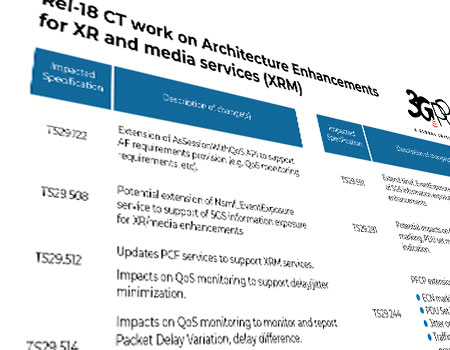
 Technology
Technology